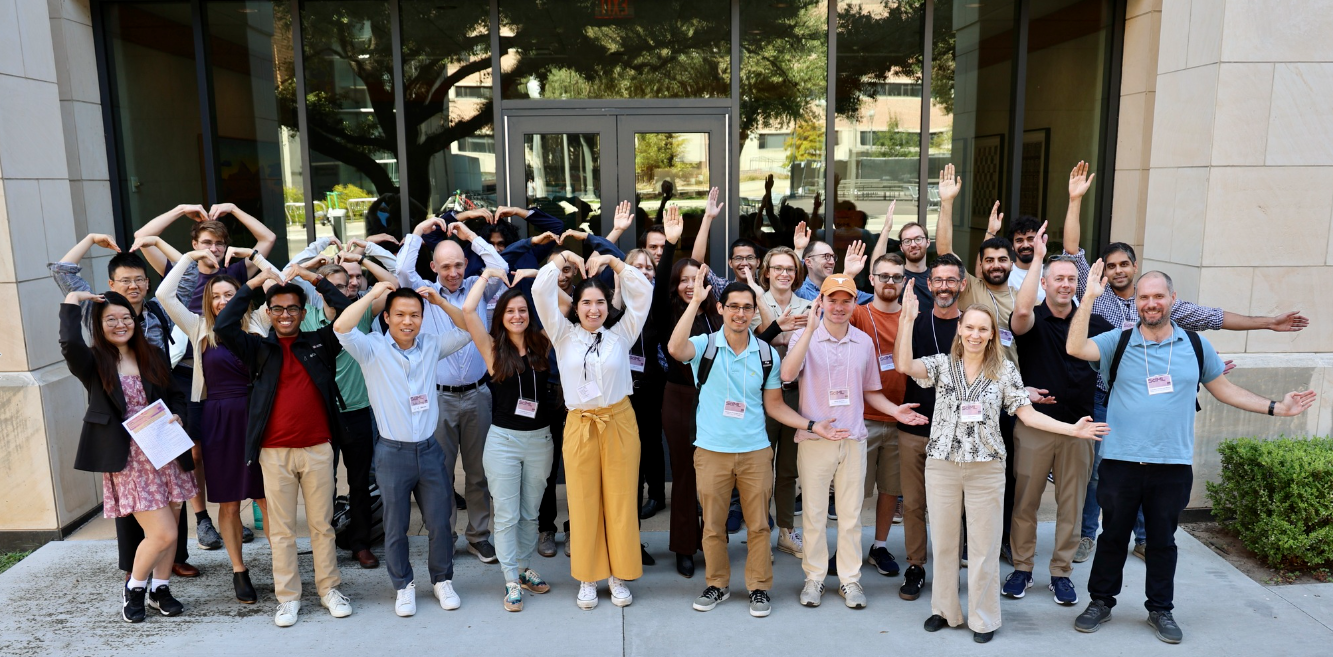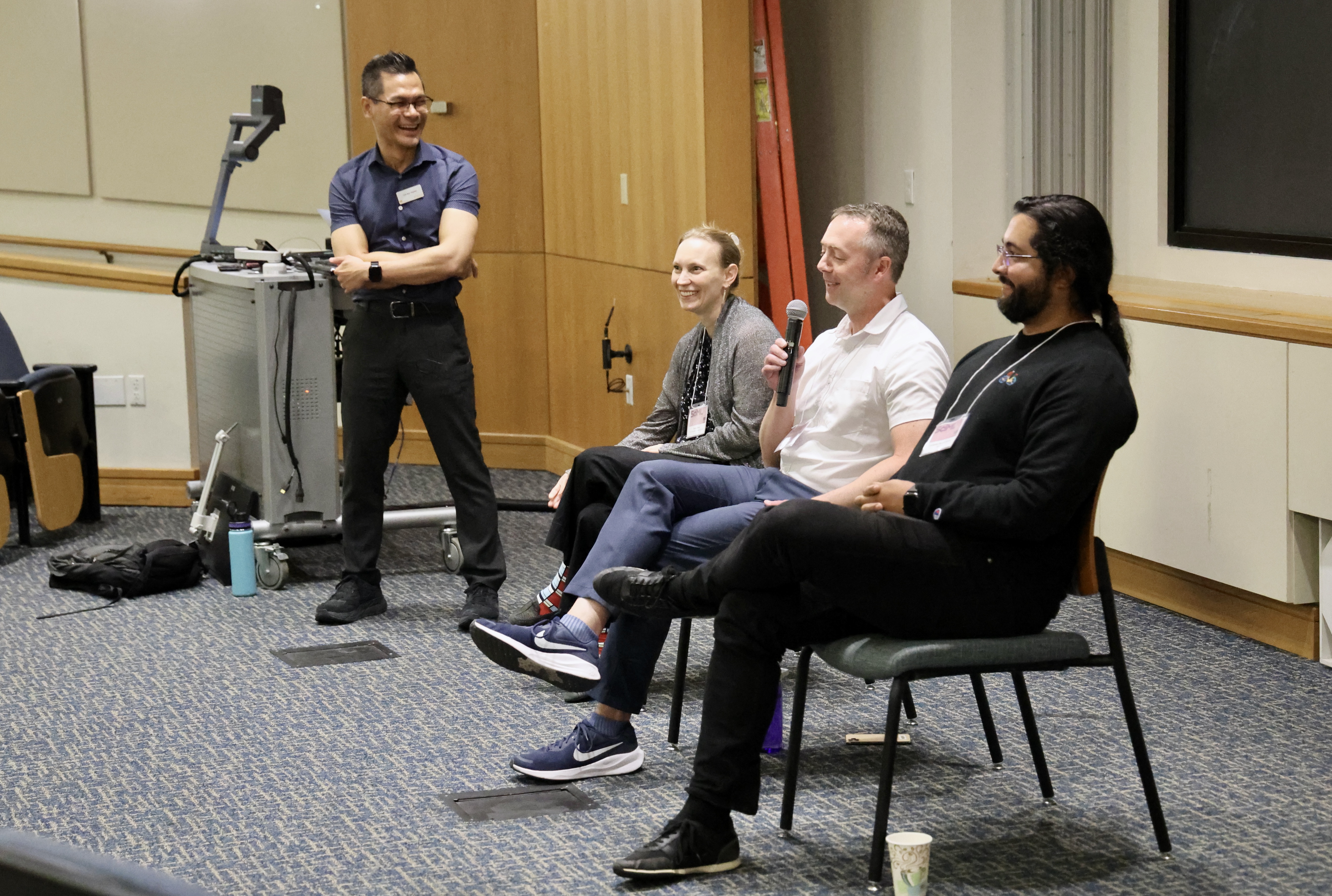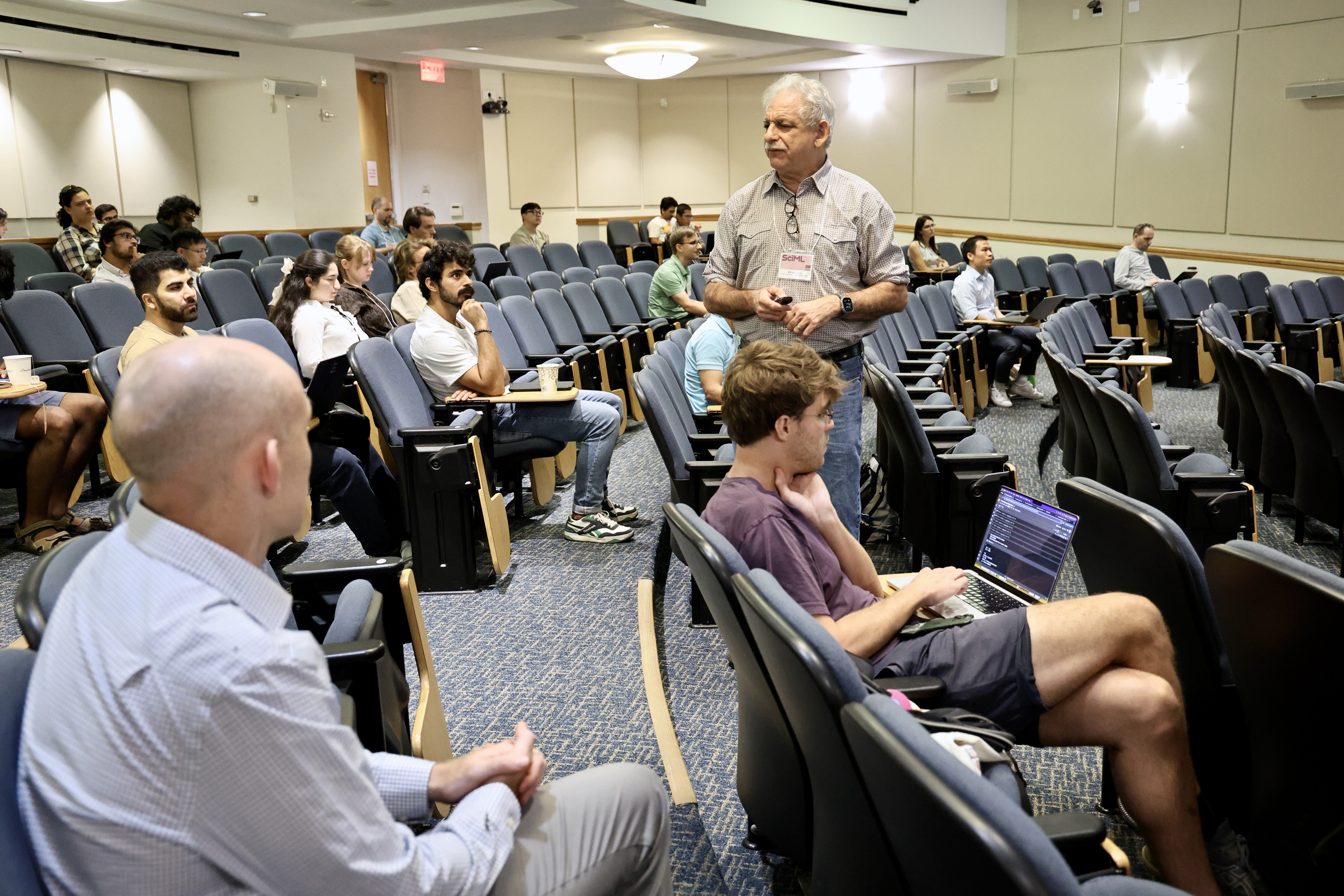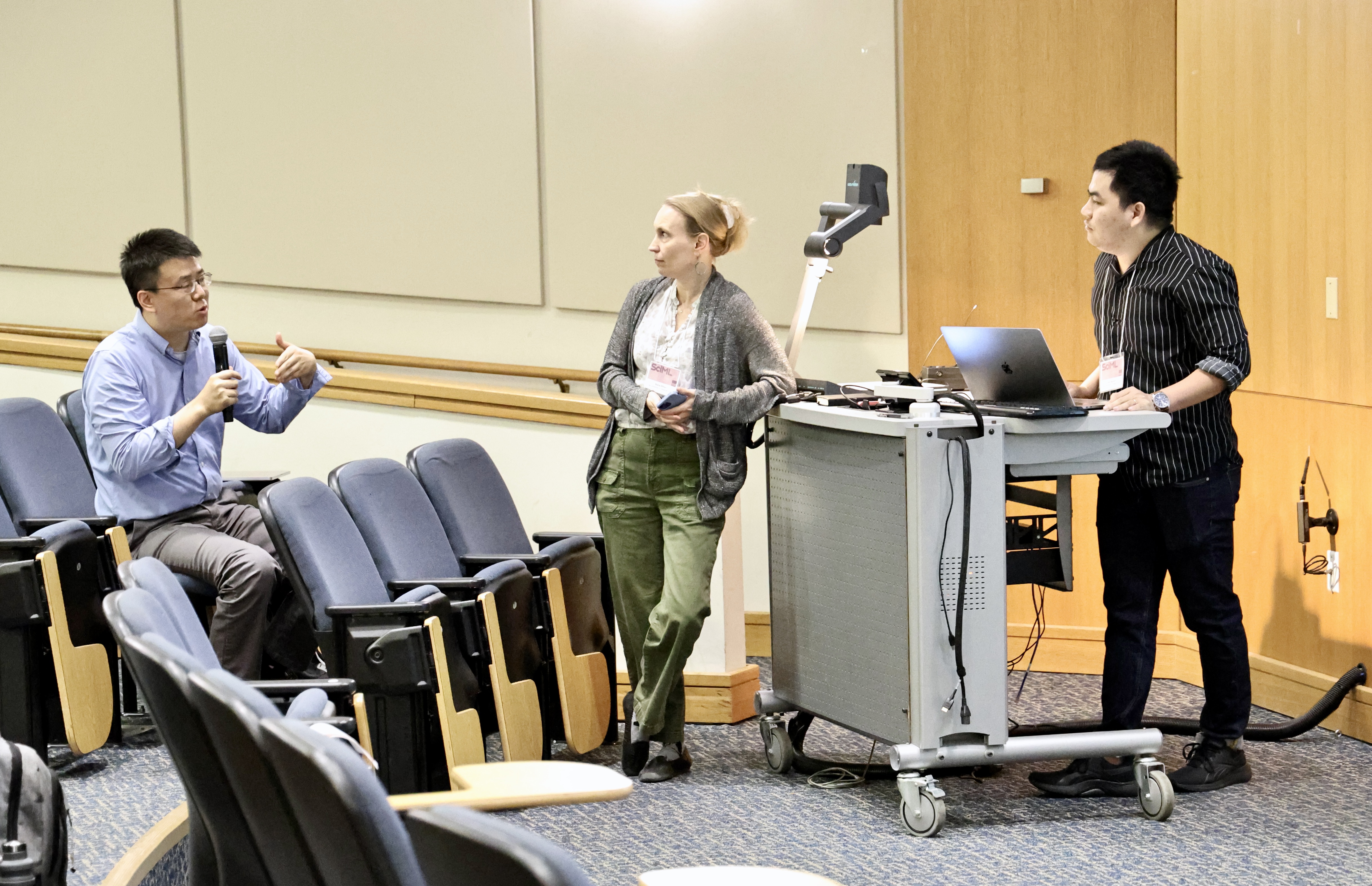What are the greatest societal problems that science seeks to solve?
The development of personalized medicine, perhaps. Building sustainable urban infrastructure. Restoring or generating access to clean air and water. Developing clean energy. Understanding the impacts and consequences of climate change around the world. These problems are vast and disparate, but the difficulties intrinsic in solving them are based on a common denominator: data is often difficult (or expensive) to acquire, dynamics are highly complex, quantifying uncertainty is critical, and decisions often have life-altering consequences.
Scientific Machine Learning combines perspectives across disciplines to craft machine learning methods that are able to make interpretable predictions that seek to provide insight into how to effectively target these issues. The Oden Institute for Computational Engineering and Sciences core faculty members Stella Offner and Tan Bui-Thanh brought together over 100 researchers and leaders from across the scientific machine learning community for the 2nd Annual Workshop on Scientific and Machine Learning. The event, held Oct. 2-4 at the Oden Institute, provided an opportunity to share research, foster collaboration, and establish central challenges and research directions.



